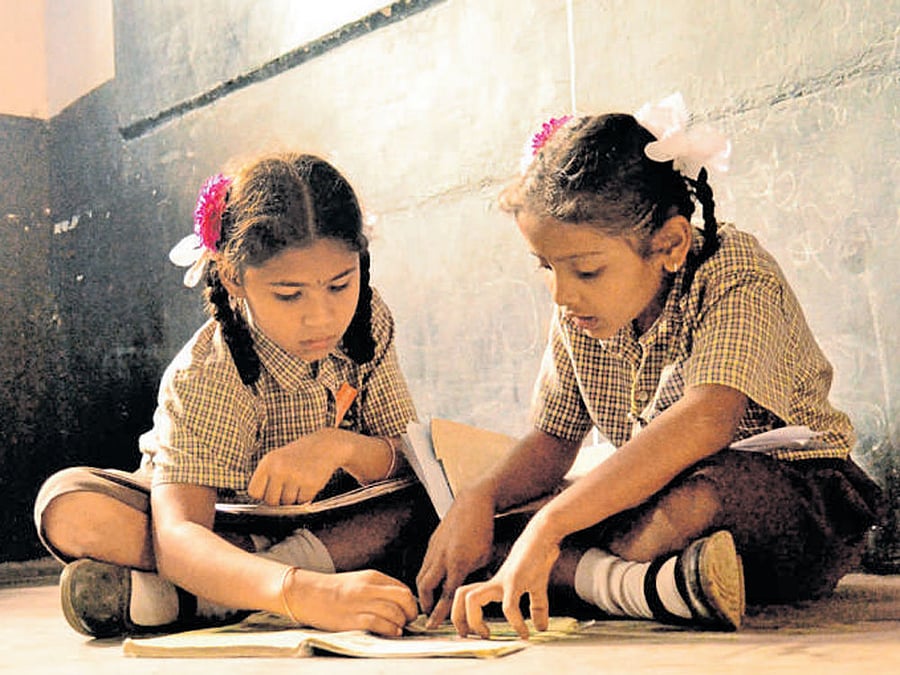
It is nine years since the implementation of the Right of Children to Free and Compulsory Education Act, 2009 (the RTE Act). The ambitious piece of legislation was enacted in 2009 to operationalise Article 21A of the Constitution and thereby provide free and compulsory education to all children of age six to fourteen years in the neighbourhood school.
The intent of the Act, stated in its Objects and Reasons, when the Bill was introduced in Parliament said: “The Right of Children to Free and Compulsory Education Bill is anchored in the belief that the values of equality, social justice and democracy and creation of just and humane society can be achieved only through provision of inclusive elementary education to all.” It is clear from this that the RTE Act envisaged much more than what we perceive as education, namely, the 3Rs (reading, writing and numeracy).
Onus on local authority
The RTE Act puts a large part of the onus of implementing the legislation on the appropriate government and local authority. Local authority, according to the Act, is “a Municipal Corporation or Municipal Council or Zila Parishad or Nagar Panchayat or Panchayat, by whatever name called, and includes such other authority or body having administrative control over the school or empowered by or under any law for the time being in force to function as a local authority in any city, town or village.”
Further, under Section 9 of the RTE Act, specific duties are assigned to the local authority for the effective implementation of the Act. These duties include ensuring the availability of a neighbourhood school; making sure children belonging to poor and disadvantaged backgrounds are not discriminated against and prevented from pursuing and completing their elementary education; maintaining records of children up to the age of fourteen residing within its jurisdiction and monitoring their admission, attendance and completion of elementary education. It also mandates the local authority with providing infrastructure including school buildings, teaching staff and learning materials; special training facility for out of school children; good quality elementary education conforming to the standards and norms specified in the Schedule; training facility for teachers; admission to children from migrant families and monitoring the functioning of schools within its jurisdiction.
As discussed above, the Bruhat Bengaluru Mahanagara Palike (BBMP) as a local authority could have taken concrete steps to improve all pre-primary, primary and secondary schools falling within its jurisdiction by effectively implementing the RTE Act. This is the duty assigned to the ‘local authority’ as part of the mandatory obligation to impart education to all children. As per the available statistics, BBMP runs 78 nurseries, 12 primary and 33 high schools in Bengaluru’s south, west and east zones.
First things first
The condition of these BBMP schools is pathetic in all respects. These schools are starved of funds even for basic facilities. As a result, BBMP is unable to provide even minimum facilities in these schools as part of the mandatory norms and standards provided under the RTE Act, let alone ensuring quality of education. This is a clear violation of the fundamental rights of children attending these schools.
As mentioned, the BBMP should be involved with managing the day-to-day affairs of all schools by regularly monitoring admission, attendance and completion of elementary education of all students. The BBMP needs to tie-up with notified academic authorities like the Department of School Educational Research and Training (DSERT), Direct Institutes of Education and Training, (DIETS) and Block and Cluster Resource Coordinators (BRCs and CRCs), which are the academic wings of the mainstream education department, to perform tasks related to quality of education as specified under Section 29 (2) of the Act. We don’t see any such organic linkages between the BBMP’s education department and the mainstream education department in the last nine years.
The BBMP has also failed to implement a key provision related to the School Management Committee (SMC), as provided under Section 21 of the Act. This would have facilitated a community-centred monitoring mechanism through the active participation of parents whose children are entitled to the fundamental right to education. Such parents could draw attention to gaps in the implementation of the Act, making it possible for the BBMP address violations then and there.
As a result of the colossal failure of the BBMP in maintaining standards and quality of education in its schools, the students in the jurisdiction of BBMP schools have been migrating to private unaided schools. The migration is not because of extraordinary facilities or quality of education in private unaided schools. It is caused by the sheer helplessness of poor and marginalised communities when the local authority abdicates its primary obligation under the law to ensure basic education to the children within its jurisdiction.
Given this abysmal state, the immediate requirement of all BBMP schools is not world class infrastructure with state-of-the-art technology, such as augmented reality, virtual reality, artificial intelligence, machine learning and robotics, under the BBMP Roshni project. Indeed, these schools need mandatory facilities to even call themselves as schools. Their requirements are as basic as such as qualified permanent teachers, enabling classrooms, functional toilets, class wise learning material, basic science laboratories, mathematics clubs, language clubs, class wise sports material, playgrounds, an enabling environment, aids for children with disabilities and above all regular training for teachers to impart quality education.
BBMP should realise that the intent of the RTE Act is to build a strong public education system to nurture the values of democracy, to uphold the basic values embodied in the Constitution and to aid in the development of mature citizens who can live in harmony and peace by respecting each other.
(The writer is a senior fellow and programme head, Universalisation of Equitable Quality Education Programme, Centre for Child and the Law, NLSIU)